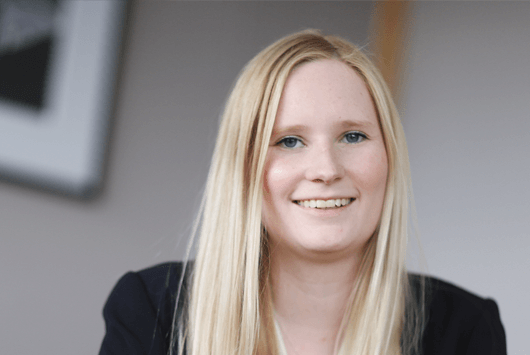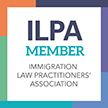Settlement and British Citizenship
Scroll to:
Overview
In order to settle in the UK, you will need to meet the eligibility criteria for your visa type.
Settlement, or Indefinite Leave to Remain (ILR) is an immigration status that allows you to live and work in the UK indefinitely without restriction.
Generally speaking, to be able to apply for ILR you usually have to have lived in the UK, with an appropriate visa type, for a period of 5 continuous years.
In some circumstances, you can apply for ILR before 5 years, within 2 or 3 years.
Most Points Based System (PBS) visas lead to settlement in the UK however some visa types do not and you cannot use time spent in the UK on one or more of the below visa types towards your 5 years’ continuous residence required for ILR:
- Visitor visas
- Tier 1 (Graduate Entrepreneur)
- Tier 2 (Intra-Company Transfer) (unless granted under the rules in place before 6 April 2010)
- Tier 4/Student
- Graduate visa
- Tier 5/Temporary Worker
If you have lived in the UK continuously for 10 years and this includes time spent on one of the above visa types, you may be eligible to apply to settle under the long residence route.
If you are unsure about whether your visa allows you to settle in the UK, please contact us.
Those with a Skilled Worker visa (formerly a Tier 2 (General) visa) can apply for ILR after 5 years continuous residence in the UK. They may also use time spent in different visa categories towards this 5 year period (provided that these visa categories are eligible for ILR).
You can apply for ILR if you’ve been in the UK legally for 10 continuous years, which is known as ‘long residence’. This route is particularly useful for people who have lived in the UK under a variety of different visas but are not eligible to settle after 5 years.
Your partner can apply for ILR once they have reached 5 years continuous residence in the UK as your dependant. This may mean that you apply first and your partner applies at a later date. This will always be the case where you are eligible to apply for ILR in 2 or 3 years as your partner must apply after 5 years.
Dependent children can apply for ILR at the same time as you with you if:
- you and the child’s other parent are applying for ILR at the same time; or
- you are applying as a sole parent with sole responsibility for the child.
Children are not subject to the continuous residence requirements, but partners are. In addition, partners and children over 18 must meet the English language requirement and pass the Life in the UK test.
It can be difficult to navigate the Immigration Rules when it comes to dependants, and it can be challenging to determine what further documents are needed when making an application as a family. We have vast experience of making successful ILR applications on behalf of families. If you are interested in finding out how we can help please contact us.
The current application fee for ILR is £2,885 A further £2,885 will be payable for each dependant.
Each applicant will also have to pay £19.20 for biometric enrolment.
If you apply through the standard service, you will get a decision within 6 months.
You can get a faster decision if you pay for the super priority service. This costs an additional £1,000 per applicant. Under the super priority service, you receive a decision the day after the biometric appointment – if that day is a weekday – otherwise a decision will be given within two working days of the appointment.
Yes a person with ILR can lose their settled status for a variety of reasons, the most common being that they leave the UK for a period of more than two years or if they commit certain offences.
You can submit your ILR application up to 28 days before you will reach the qualifying period of continuous residence. For example, if your Tier 2 General visa was granted on 30 September 2017, you will reach 5 years continuous residence on 30 September 2022 and will be able to submit your application 28 days before, on 2 September 2022 at the earliest.
Eligibility criteria
The eligibility criteria can vary depending on the type of visa you have but generally speaking:
- you need to have spent a minimum period of time continuously resident in the UK;
- you have to meet the English language requirement;
- you have to have passed the Life in the UK test;
- you cannot have any unspent convictions;
- you must not fall under any of the general grounds of refusal; and
- you must not have been in the UK illegally.
You should check the specific eligibility criteria for your visa type before applying. For example, if you have a Tier 2 General visa or Skilled Worker visa you need to be paid a minimum salary to be eligible for ILR. If you have any questions about the eligibility criteria for your specific visa type, we will be happy to help.
To be eligible for ILR you need to demonstrate that you have lived in the UK for a continuous period of time. This is usually, but not always, 5 years.
To have been ‘continuously resident’ in the UK, you must not have spent more than 180 days outside of the UK in any 12 month period.
If you have spent a lot of time outside of the UK and are worried about whether or not you meet this requirement, please contact us to discuss your specific circumstances.
This depends on the visa category or categories that you have held during these 5 years and whether you meet the other eligibility criteria. Please see which visa types lead to ILR in the above question.
The following visa types allow you to apply for ILR before the usual 5 years:
- Tier 1 (Investor) – you can apply for accelerated ILR within 2 or 3 years depending on the amount of your investment;
- Tier 1 (Exceptional Talent) and Global Talent – some Exceptional Talent or Global Talent visa holders can apply for ILR within 3 years. This depends on:
- the endorsing body; and
- whether you were endorsed for exceptional talent or promise;
- Tier 1 (Entrepreneur) – you may be able to apply within 3 years depending on whether you have created a certain amount of jobs or income; and
- Innovator Founder – you can apply within 3 years.
You are required to prove your knowledge of the English language in order to apply for ILR unless an exemption applies. This can be done by:
- providing evidence that you have a degree that has been taught or researched in English (whether in the UK or overseas); or
- by taking an approved Home Office English language test at level B1, B2, C1 or C2.
You do not need to prove your English language abilities if you are:
- under 18 or over 65 years old;
- unable to because of a long term physical or mental condition – instead you need to provide medical evidence; or
- you are from a majority English speaking country – a list of these countries can be found here.
Before you can apply for ILR you must pass the Life in the UK test. The test comprises 24 multiple choice questions on UK history, culture and traditions. The test must be booked through gov.uk and be taken at an approved test centre. It costs £50.
The ILR application must be submitted online with your supporting documents uploaded electronically. You will also have to attend a biometric appointment to complete the application.
In general terms, all applicants will need to provide evidence of:
- their English language ability e.g. degree certificate, test pass certificate;
- Life in the UK test pass certificate; and
- current visa type and previous UK visas held.
There may be additional documents that you have to provide with your application which are dictated by your individual circumstances (such as your current visa category, whether you are applying by yourself or with dependants and your nationality etc.).
For example, if you are relying on time spent in the UK under a Tier 2 General visa for your ILR application you will need to provide evidence of your current salary and a letter from your sponsor. If you are relying on time spent in the UK under a Tier 1 Exceptional Talent or Global Talent visa, you will need to provide evidence that you have earned money in your field of expertise while you have had the visa.
Submitting missing or incorrect supporting documents can result in your application being rejected. Our expert team have significant expertise in preparing successful applications, for further information contact us.
ILR top tips
Obtaining ILR, also known as ‘settlement’, is an important milestone in any migrant’s immigration journey. It gives you the right to live, work and study in the UK indefinitely and without any restrictions. Further down the line, it can also be used to apply for British citizenship so if you are eligible for ILR, it is worth making your application as soon as possible.
Ensure you have an accurate record of your absences over the qualifying period (usually 5 years). You must not exceed 180 days’ absence in any 12 month period but remember that only whole days outside the UK are included in the calculation. If you can’t recall your absences from the UK, you can request a DSAR from the Home Office to obtain this information but this may result in delays.
Helpfully, absences for dependant children aren’t counted so you only need to consider your absences and the absences of any dependant partner.
Make sure you understand how to meet the English Language requirement before making your application. You must have either (1) passed a recognised English Language test at level B1 (intermediate); (2) have a degree that was taught or researched in English or (3) demonstrate that you are a citizen of a majority English speaking country who does not need to satisfy this requirement.
If required, you should book an English language test before you reach the qualifying period, so as not to delay your application. If you have a degree taught in English which is from an overseas university, you will need a copy of your degree certificate and a letter from Ecctis confirming your degree is equivalent to a UK qualification and that it was taught in English. You should obtain these documents as soon as possible.
For those applying for ILR on the Skilled Worker route, you will need a letter from your employer in support of your application which confirms: (1) the SOC code under which you’re sponsored; (2) your salary (which must be above the applicable rate for the SOC code); (3) that you will be required in your role for the foreseeable future; and (4) that the company continues to hold a sponsor licence.
It’s also helpful to have a letter from your employer which sets our your absences from the UK and which explains if any of those absences have been work-related. We can provide you with draft letters to ensure they include the necessary content and if you are interested in this, please get in touch.
Carefully consider the timing of your application. You can submit your application up to 28 days before you reach the qualifying period and you can also start the qualifying period from the date you were granted entry clearance, provided you count the time between the grant of entry clearance and arrival in the UK towards your total absences.
If you are unsure about when to apply, it is always best to take legal advice as your application can be rejected if it is made too early.
Once you are aware of the date you intend to apply, you should ensure you pass the Life in the UK test in advance of this date. So plan your revision early!
Please do consider the processing times for your ILR application. Standard processing times are up to 6 months and you are unable to travel outside the UK whilst your application is being processed.
For this reason, many applicants pay an additional £500 for the priority service fee, or £1000 for the super priority service, which allows you to get a decision within 5 working days or the next working day respectively.
If you would like further advice about your ILR application, please contact a member of our specialist Immigration Team.
111,760 decisions were made on ILR applications in the UK in the year ending 2021, which is a 20% increase on the previous year. Out of these applications 110,145 resulted in a successful grant of indefinite leave to remain.
These statistics show that ILR applications are on the rise and our 5 top tips should help you ensure that your application falls within the 99% which are successful. However if you would like further advice about ILR or if you have any specific questions, please contact a member of our specialist Immigration Team.
British Citizenship
Yes. Once you have held ILR, or ‘settled status’ under the EU Settlement Scheme, for a period of 12 months, you can apply for British citizenship.
You do not need to wait 12 months to apply where you are married to a British citizen.
You must have lived in the UK for at least 5 years before the date of your application (or 3 years if applying based on your marriage to a British citizen).
During this time you should not have:
- Spent more than 450 days outside the UK during the 5 years before making your application (or 270 days during the 3 years before making your application based on marriage to a British citizen);
- Spent more than 90 days outside the UK in the 12 months before the date of your application; or
- Have broken any UK immigration laws (for example living illegally in the UK)
Generally speaking, in order to be granted British Citizenship you must be over 18, prove your knowledge of English language and life in the UK, intend to continue living in the UK and be of good character.
This will depend on the country that you are a national of as not all countries permit their citizens to hold dual citizenship.
If your country does not, you would need to carefully consider whether you are happy to renounce your citizenship of your home country in order to become a British citizen.
You must have been physically present in the UK exactly 5 years before the date the Home Office receives your application (or 3 years if applying based on your marriage to a British Citizen.
For example, if the Home Office receives your application on 20 June 2022 but you left the UK on 10 June 2017 and returned to the UK on 25 June 2017 you will not qualify. You would need to wait until 24 June 2022 to apply.
Unlike with ILR applications, you cannot apply for citizenship 28 days before you reach the qualifying period. Instead you must wait until you have held ILR for a full 12 months before you apply.
It costs £1,500 to apply.
You must also pay £19.20 to have your biometric information taken.
You can either apply online or by post. However postal applications take much longer than online applications.
You will usually get a decision within 6 months, however it may take longer to get a decision because of COVID-19.
You will need to attend a citizenship ceremony if your application is successful.
You will need to attend a citizenship ceremony if you’re 18 or over and have successfully applied to become a British citizen.
During the ceremony you will have to make an oath of allegiance or an affirmation and a pledge to respect the rights, freedoms and laws of the UK.
At the end of the ceremony you will be presented with your certificate of British citizenship and a welcome pack. If you attend a virtual ceremony, you will be sent a copy of the certificate afterwards.
Usually, you must attend a citizenship ceremony within 3 months of receiving your invitation from the Home Office however because of coronavirus, this has been extended to 6 months.
You must send your Biometric Residence Permit (BRP) back to the Home Office within 5 working days of getting your certificate.
You can be fined up to £1,000 if you do not return your permit within 5 working days.
You can also apply for a British passport or if you would prefer, a certificate of entitlement.
UK Electronic Travel Authorisation
The Electronic Travel Authorisation (ETA) is a pre-entry requirement for non-visa nationals visiting the UK. It’s designed to strengthen border security and streamline the entry process, similar to the US ESTA and Europe’s ETIAS systems.
An ETA will be required for all travellers who:
- Do not need a visa to enter the UK; and
- Do not have existing immigration permission (e.g., a visa, or permission to work, live, or study in the UK).
Exemptions include:
- Holders of a UK or Irish passport.
- Residents of Ireland, Guernsey, Jersey, or the Isle of Man (in most cases).
- Anyone with valid entry clearance or UK immigration permission.
Under an ETA, visitors can:
- Stay for up to 6 months for tourism, visiting family, business purposes, or short-term study.
- Stay for up to 3 months under the Creative Worker visa concession.
- Engage in a permitted paid engagement.
- Transit through the UK.
Restrictions: An ETA does not permit paid or unpaid work for a UK employer (except under specific concessions), living in the UK through successive visits, or claiming public funds.
An ETA is valid for 2 years or until the individual’s passport expires, whichever comes first.
The rollout is being implemented in phases:
Phase 1: Gulf Cooperation Council states (e.g., UAE, Saudi Arabia) – already mandatory.
Phase 2: Non-European countries like the US, Canada, and Australia – mandatory from 8 January 2025. Applications open on 27 November 2024.
Phase 3: European countries (e.g., France, Germany, Italy) – mandatory from 5 March 2025, with applications opening on the same day.
The application fee is £10 per person, which is non-refundable.
Applications will be submitted online. Individuals need to provide:
- Personal details.
- Travel information.
- Answers to security-related questions.
Processing time is typically 3 working days, but applications requiring further checks may take longer.
Travellers without an ETA will likely be refused boarding by their airline or denied entry upon arrival in the UK. The government may provide a brief grace period during the rollout, but businesses and travellers are advised to apply well in advance to avoid disruption.
An ETA can be refused or cancelled if the applicant:
- Has had a UK visitor visa refused.
- Has a criminal conviction resulting in over 12 months in prison or a recent conviction within the last 12 months.
- Has previously overstayed or breached UK immigration rules.
- Owes over £500 to the NHS.
- Plan ahead: Build in time and budgets to accommodate the rollout and ensure all travelling employees apply early.
- Educate employees: Provide clear guidance on the application process and what activities are permitted under an ETA.
- Prepare for potential issues: Identify employees with complex immigration histories who may require additional support or advice.
- Audit frequent travellers: Ensure that staff who make multiple trips to the UK are compliant with all entry requirements.
No, holding an ETA does not guarantee entry. Border officers may still ask questions about the traveller’s purpose and activities in the UK. It is crucial to ensure that employees understand their permissions under an ETA and carry supporting documentation if needed.
If an ETA application is refused, there is no right to an administrative review or appeal. The individual must apply for a full visa to enter the UK.
The ETA scheme provides an opportunity to streamline travel processes but requires careful planning to manage costs, timelines, and compliance. Businesses should prioritise:
- Early applications for employees.
- Providing training to ensure employees understand ETA restrictions.
- Conducting audits of their workforce to prevent refusals or entry issues.
Case study
Who was the applicant?
Krishna Kopuru is a leader in driving digital transformations and IT infrastructure initiatives in global organisations.
Having worked in the UK for nearly five years under a Tier 2 Intra Company Transfer visa for a large multi-national IT consultancy, Mr Kopuru approached Ward Hadaway in 2017 to assist with an application for endorsement for the Tier 1 Exceptional Talent visa which was granted first time under the Exceptional Talent criteria.
Shortly afterwards, Mr Kopuru received his new visa and moved roles and employers as well as subsequently setting up his own IT consultancy business.
In advance of reaching three years in the UK spent under the Tier 1 Exceptional Talent visa, Mr Kopuru sought our assistance with preparing his application for Indefinite Leave to Remain (“ILR”).
How did we help?
During the three years continuous residence in the UK required as part of a successful ILR application, Mr Kopuru had worked for different employers in the tech sector, as well as being a shareholder and director of his own IT business. This significantly increased the volume of supporting documents required for the application to evidence his work and earnings in the digital technology sector.
After advising on the potential supporting documents and reviewing the same, we assisted by narrowing the scope of required documentation evidencing his work and earnings and provided template letters for former employers to use when attesting Mr Kopuru’s role within their business.
We also liaised with his own company accountants in order to obtain the relevant information and documentation regarding company accounts, dividends paid and tax returns submitted for submission in support of the application.
This was in addition to assistance with reviewing all absences from the UK over the three year period to ensure compliance with the strict residence requirements and ensuring all supporting documents and information included in the application form was correct.
The result:
“Flora provided me with invaluable support and expertly navigated the ILR rules and guidance which made the process much easier for me. We worked together throughout the application process from the very beginning to the very end.
At each stage in the process, Flora clearly outlined the options for me and set out what I was required to do and gave me the guidance and support to do so.
For example, my ILR application was submitted during the covid19 pandemic when the priority services were suspended which meant that travel outside the UK was not permitted whilst the application was pending. Flora advised me on the different options available for providing the required biometric details to UK Visas & Immigration (“UKVI”) and the pro’s and con’s of each option. I was then able to make an informed decision on how to proceed and went on to secure a quick and efficient service from UKVI which helped me to receive my ILR in a fraction of the standard 6 month processing time.”
Some kind words:
Mr Kopuru said “obtaining ILR is a key milestone and Flora understood the importance of this and helped to ensure that it was granted, first time with no issues. Having worked with Flora and Ward Hadaway for several years now, I have no doubt that we will continue to work together on further matters which I require support on and also to refer friends and family requiring similar assistance.”
Who was the applicant?
Tushar Sharma is the Founder of London based software development company, Zeg.ai Ltd. The company’s fully automated technology allows its customers to create 3D models of their products on demand without the time-consuming and expensive process of manually creating the 3D images.
How did we help?
In 2018, Ward Hadaway assisted Zeg.ai Ltd with the process of applying for a sponsor licence to allow the company to sponsor a Russian national for a Tier 2 General visa to take up a key role within the business.
Mr Sharma was himself a visa holder and had previously had his own Tier 2 General visa and most recently a Tier 1 Exceptional Talent visa and so when the time came for him and his family to apply for Indefinite Leave to Remain (ILR) in the UK, he instructed Ward Hadaway for support with the application.
The most difficult part of submitting a successful ILR application is ensuring that the correct supporting documents are provided with the application. This is particularly the case where the applicant has held various different UK visas in the past and also when they are applying with dependants. In Mr Sharma’s case, this meant that additional documents such as letters, declarations and tax documents needed to be prepared collated, reviewed and submitted.
The result:
“In the end, I think we submitted around 200 pages of supporting documents. At the beginning of the application, Flora identified the supporting documents that would be applicable to me and my family’s circumstances and I went away and gathered these. I shared electronic copies for review and Flora quickly identified incomplete or missing documents as well as ones which were surplus to requirements. The documents were categorised and put in chronological order to make it as easy as possible for the Home Office to follow.”
Our initial advice to submission of the application took 8 weeks and the applications were approved shortly after. An ILR application is one of the most important immigration applications that you can make and are very costly, so it is crucial that it is done right, first time.
Some kind words:
Mr Sharma said; “I had worked with Flora Mewies and Natalie Payne previously through my company and they provided an excellent service. I knew that they would be able to simplify the ILR process for me and I was right.”
Services and pricing
We assist UK visa holders with their applications for Indefinite Leave to Remain (settlement) in the UK. This includes:
- accelerated settlement for Global Talent and Investor visa holders
- settlement after 5 years for PBS visa holders and their dependants
- settlement after 5 years or 10 years for partners of British citizens, and
- settlement under the 10 year long residence route.
We also assist individuals with their applications to become a British citizen. This includes:
- if you are married to or in a civil partnership with a British citizen
- if you have ILR or Settled Status
- if you were born in the UK
The work involved commonly includes:
- initial correspondence with you regarding eligibility
- reviewing and advising you on the draft completed application form
- advice on the application process
- advice on which supporting documents to provide with the application
- assisting with preparation of draft supporting documents including letters from third parties, and
- assisting with questions about the process or correspondence from the Home Office.
Our prices for such assistance start at £1,500 plus VAT.
The fee estimate for the above service will depend on your route to settlement or citizenship. Please contact us to discuss your personal circumstances and we will be happy to provide you with a quote.
Disclaimer
Given the fast pace of change, we would stress that this information is designed to be informative, not advisory and represents our understanding of English law and practice as at the date indicated. We would always recommend that you should seek specific guidance on any particular legal issue.
As a hub, we have included references to articles and explainers from third parties. We have no control over and are not responsible for the content, use by you or availability of those third party websites, for any products or services you buy through those sites or for the treatment of any personal information you provide to the third party.




